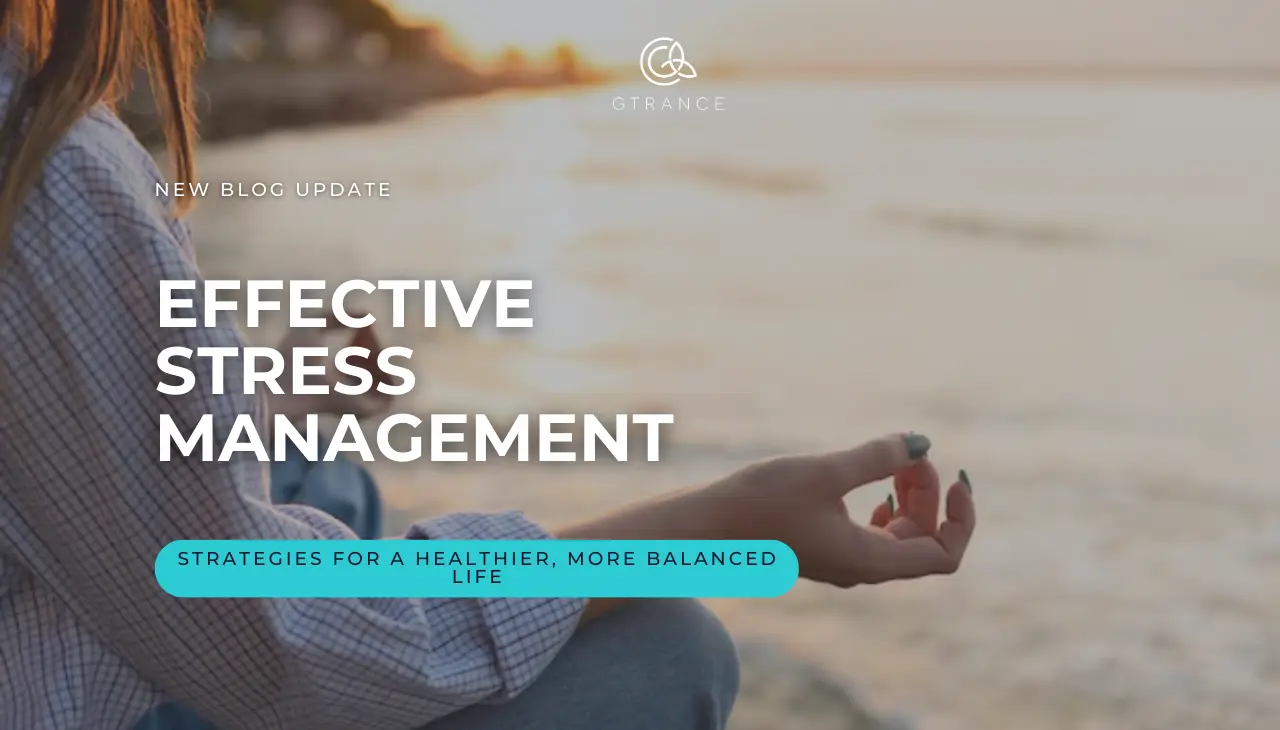
Effective Stress Management:
Strategies for a Healthier, More Balanced Life
In today’s fast-paced world, stress has become an inevitable part of life. From tight deadlines at work to family obligations, personal expectations, and the constant influx of information, stress can easily become overwhelming. While stress is a natural response to life’s challenges, it’s essential to learn how to manage it effectively to prevent it from taking a toll on your mental and physical health. In this blog, we’ll explore practical strategies for managing stress and achieving a healthier, more balanced life.
Understanding Stress: The Good, The Bad, and The Ugly
Stress, in small doses, can be beneficial. It motivates us to meet deadlines, perform well under pressure, and overcome challenges. This is often referred to as eustress, or positive stress. However, when stress becomes chronic, it can lead to physical and mental health problems, including anxiety, depression, heart disease, and even burnout. This type of stress is called distress, and it can diminish our quality of life.
Understanding how stress affects us is the first step toward managing it. Stress triggers the release of hormones like adrenaline and cortisol, which prepare the body for “fight or flight.” While this is useful in short bursts, prolonged exposure to high-stress levels can wear down the body, leading to negative outcomes.
Stress Management Strategies
Thankfully, there are many effective techniques to help manage and reduce stress. Here are some proven strategies you can incorporate into your daily routine to stay calm, focused, and resilient.
- Mindfulness and Meditation
Mindfulness and meditation are two powerful tools for stress management. These practices focus on bringing your attention to the present moment and allowing your thoughts to pass without judgment. By practicing mindfulness, you can gain better control over your stress responses, become more aware of your emotional triggers, and develop greater emotional resilience.
Tip: Start with just 5-10 minutes of deep breathing or guided meditation each day. Apps like Headspace or Calm can help you get started.
- Physical Activity
Exercise is one of the most effective ways to reduce stress. Physical activity releases endorphins, the body’s natural mood elevators, which can help lower cortisol levels and improve your overall sense of well-being. Whether it’s going for a walk, hitting the gym, or practicing yoga, movement is a powerful stress reliever.
Tip: Aim for at least 30 minutes of moderate exercise most days of the week. If you’re pressed for time, try short bursts of activity, like a quick walk around the block or stretching.
- Time Management and Prioritization
One of the main causes of stress is feeling overwhelmed by too many tasks. Time management is key to reducing this stress. By breaking down your tasks into manageable steps and prioritizing your to-do list, you can tackle your responsibilities one step at a time without feeling like you’re drowning.
Tip: Use techniques like the Pomodoro Technique (work for 25 minutes, then take a 5-minute break) to stay focused and productive. Also, consider delegating tasks when possible.
- Social Support
Strong relationships are essential for managing stress. Talking to friends, family, or a therapist can help you process your emotions and gain perspective on stressful situations. Socializing and sharing your experiences can lighten your emotional load and provide valuable support when you’re feeling down.
Tip: Make time for social activities, even if it’s just a quick coffee with a friend or a phone call to a loved one. Having a support network can make all the difference.
- Sleep Hygiene
A lack of quality sleep can exacerbate stress, making it harder for your body and mind to recover. Good sleep hygiene—such as sticking to a regular sleep schedule, creating a calming bedtime routine, and avoiding screens before bed—can help you get the rest you need to feel refreshed and better able to handle stress.
Tip: Aim for 7-9 hours of sleep each night. Try winding down with relaxing activities like reading, journaling, or taking a warm bath before bed.
- Cognitive Behavioral Techniques
Cognitive Behavioral Therapy (CBT) focuses on changing negative thought patterns that can contribute to stress and anxiety. By identifying unhelpful thoughts and replacing them with more balanced, realistic ones, you can reduce stress and improve your emotional resilience.
Tip: Practice thought stopping or reframing negative thoughts. For example, if you think, “I can’t handle this,” challenge it by replacing it with, “I am capable, and I can take this one step at a time.”
- Healthy Eating
What we eat can have a direct impact on how we handle stress. A diet high in processed foods, caffeine, and sugar can increase anxiety levels. On the other hand, a balanced diet rich in whole foods, such as fruits, vegetables, lean proteins, and whole grains, can stabilize your mood and give you the energy to manage stress.
Tip: Try to incorporate more stress-busting foods, such as leafy greens, fatty fish (like salmon), and nuts, into your meals. Reducing caffeine and sugar intake can also help.
Final Thoughts: Take Control of Your Stress
Stress is a natural part of life, but it doesn’t have to control you. By using these stress management strategies, you can better cope with challenges and improve your overall well-being. Remember, managing stress is a lifelong practice—be patient with yourself and take one step at a time.
The key is to find what works for you. Whether it’s mindfulness, exercise, or seeking support, there are countless ways to manage stress effectively. Start incorporating these techniques into your daily routine, and soon, you’ll feel more balanced, grounded, and resilient in the face of life’s pressures.
Resources:
- Headspace: www.headspace.com
- Calm: www.calm.com
- Pomodoro Technique: www.pomodorotechnique.com
Visit us at www.gtrance.com to find out about how efficient our training is and how it ticks all the boxes and much more!
©2025 Grace El Tayar